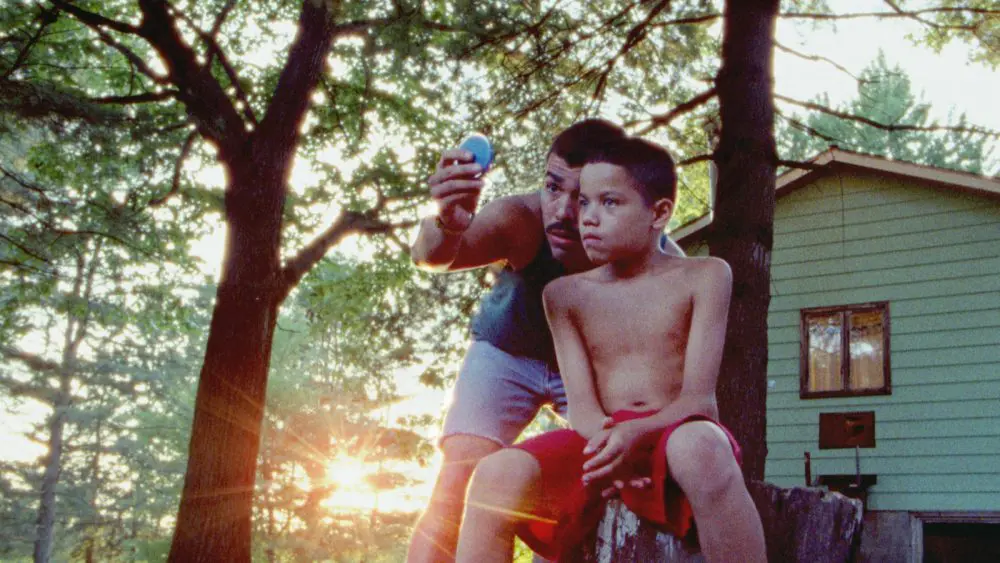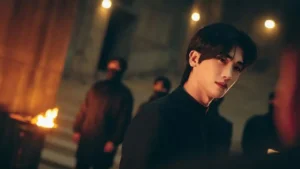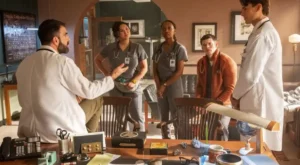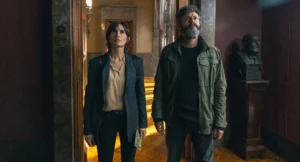Summary
We the Animals is a mishmash of puzzle pieces that form a coming of age tale reminiscent of Moonlight, but that won’t quite fit the way they should (which is rather the point). Moving, and almost mystical.
When Jonah settles in on top of his father’s lap, who lays back in his chair in front of his work desk, he asks him, “Why is the light in the cage?” The father looks up at the ceiling in his office and takes in the bright, yellow light enclosed by a small, metal, black-wired frame. “So it doesn’t escape,” he says. When Paps (Raul Castillo) had these kids, these “animals” as they are called, his future has been set, trapped, and with no escape.
We the Animals was directed by Jeremiah Zagar, who exposes you to a volatile and imaginative world in a handful of vignettes that are put together like puzzle pieces that won’t quite fit together the way they should. It may confuse some viewers, but that doesn’t mean the script is incoherent, as Jonah (Evan Rosado) is trying to make sense of things he doesn’t understand, which is rather the point. He puts the viewer in the child’s mindset, and Jonah has a front-row seat to his parents’ emotional, abusive, and turbulent relationship that’s like taking a seat in a roller coaster that’s about to drop downhill without a guardrail.
The film was adapted from a book by Justin Torres of the same name. The film’s adaptation keeps the central theme together of parents who were married too young. The mother became pregnant barely as a teenager and at an age where they were not mature enough to handle the emotional and financial responsibility of having a family. Soon, they would have three kids, and as they go, Paps and Ma’s (Sheila Vand) happiness crumbles under a mountain of bills, and their youthful optimism begins to fade.
Two narratives are working here. The first is the parents being controlled by the limitations they have set for themselves by having three kids, and the “burden” is transparent, as the kids live in constant fear of their father’s violent temper and what he might do to escape the burden while turning around than hoping they disappear. What makes it more disturbing is the kids become immune to it and even take on some of their father’s characteristics. The second is Jonah, who deals with the openness of his parents’ sexual intimacies being displayed for him to see and grapple with a feeling he has never experienced before, with a new friend he meets when he and his brothers run around town rampant and unsupervised.
The Animals can be quite raw and slightly maddening with scenes that pop up that appear not to belong, but the film’s end later makes sense with a little patience. The best scenes in the film are when Jonah melds the real world with his own sense of escapism with drawings and writings about the feelings that are practically coming out of his pores, yet he can’t explain. The film becomes moving and even takes on an almost mystical quality when Jonah’s scribbles come to life. It’s not a perfect film, but it engages the viewer enough to double down on their investment and ultimately have a rewarding experience.




